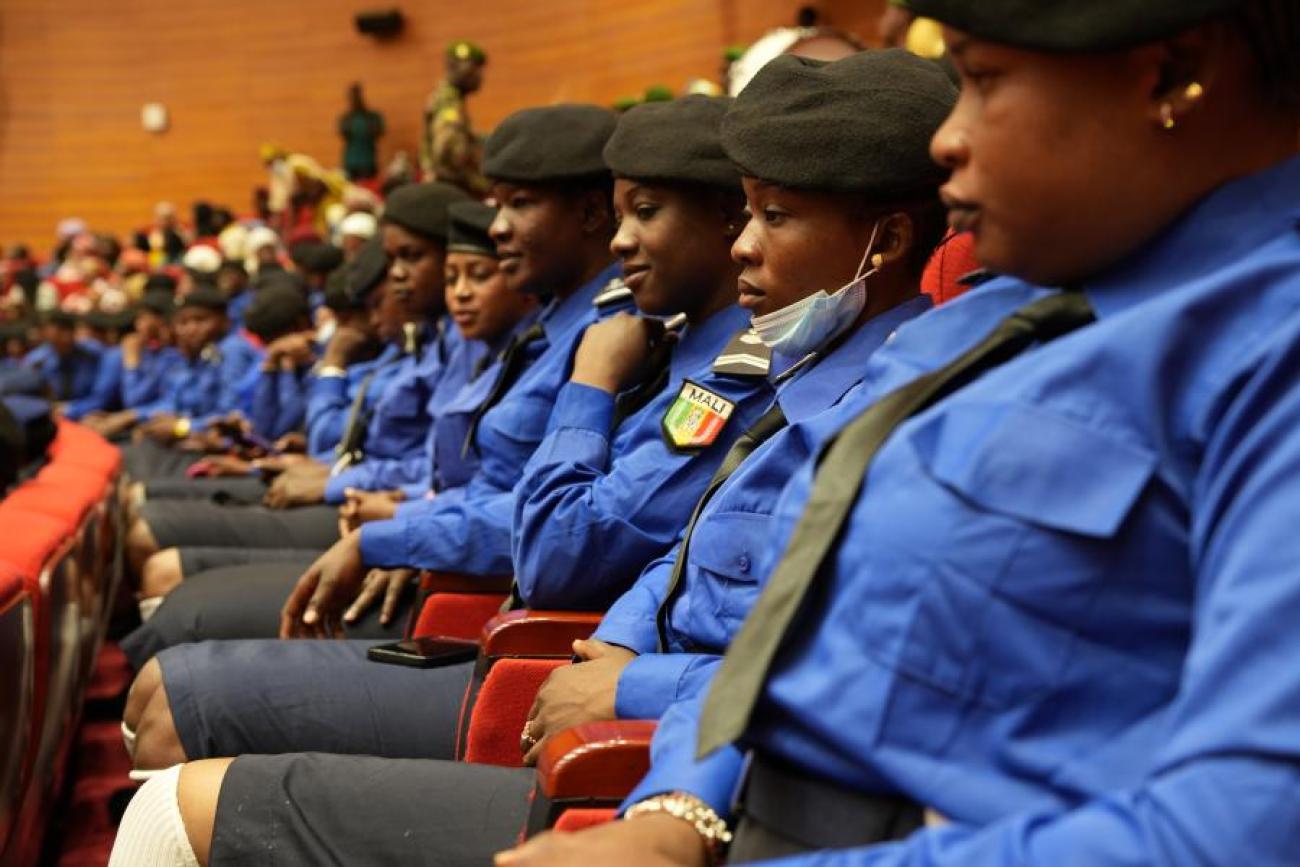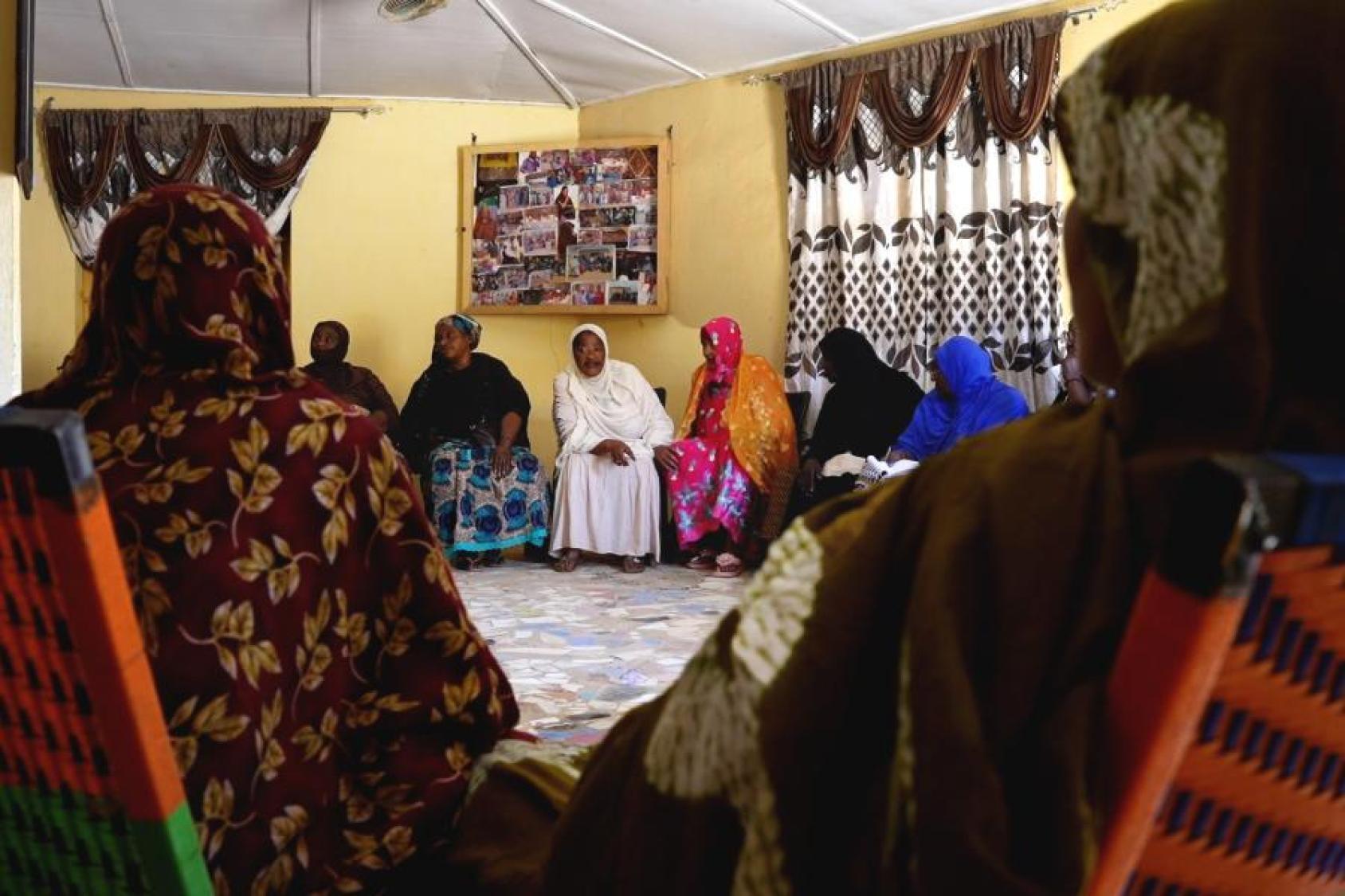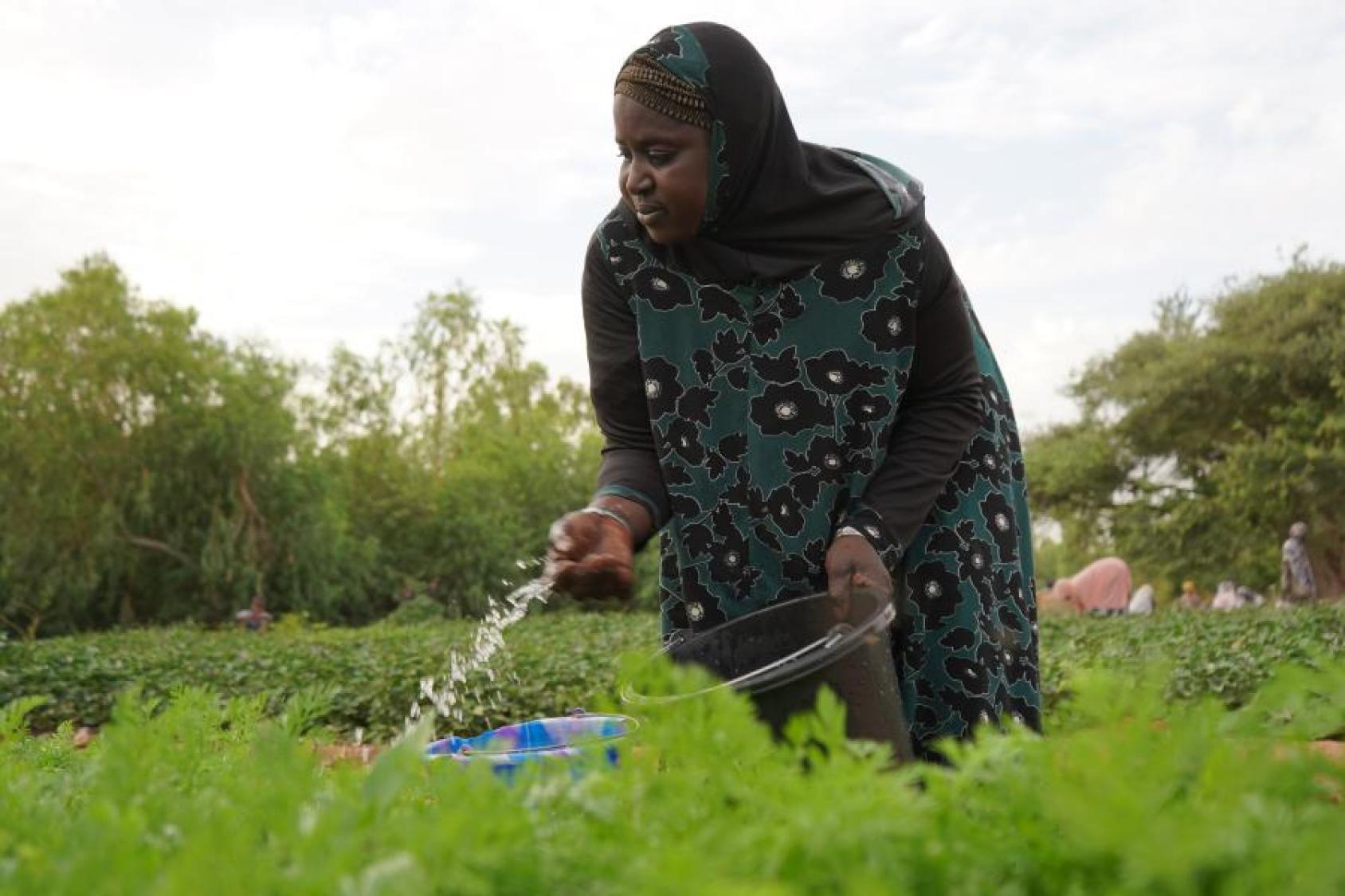Peace and Politics: Women in Mali Persevere Through Crises

"If things aren't going well in town, [...] we issue alerts. Because women are afraid. The children are afraid. We get together to discuss and solve any issues so that we can move forward together."
Mouna Awata is the president of the "Case de la Paix" (House of Peace), a project designed to foster women’s dynamic participation in conflict resolution and public life, and promote their economic empowerment in the precarious region of Gao, in the north of Mali.
A major crossroads of trade with neighboring Niger and Burkina Faso, Gao also hosts a growing number of displaced people seeking refuge due to armed conflicts in the surrounding regions. According to the UN Refugees Agency (UNHCR), over 200,000 people have been displaced in and around Gao as of 31 January 2024.
Since its creation in 2013, the "Case de la Paix", now made up of 76 women’s associations and 2000 women, demonstrates the remarkable resilience and initiative displayed by women in the Sahel country in West Africa.
With support from several United Nations entities including UN Women, MINUSMA, the former peacekeeping mission and the support of several Member States and the Peacebuilding fund, the "Case de la Paix" women decided to remain in the region, throughout the successive crises that shook their country, including successive regime changes and confrontations between several armed groups.
"As leaders, we stayed. We said we would stay with our husbands, with our children, with our boys. [So that] we are involved in anything that happens at the state level. We are consulted as women and as mothers. We talk about the city’s problems and offer our opinions on possible solutions", says Ms. Awata.
Women at the heart of institutional reforms
Under the leadership of the UN Resident Coordinator's Office and with the close engagement of various UN entities, the UN in Mali is amplifying the voices and roles of women like Ms. Awata, in both, peacebuilding efforts and political reform.
With UN Women's support through the Case de la Paix and another programme on ‘Women Peace Ambassadors’, Mali's women's organizations have helped the government draw up the “Roadmap on Gender, Elections and Reforms”, officially launched on 8 February 2024. The Roadmap is targets greater representation of women in appointed and elected functions as well as accelerating the mainstreaming of gender in the electoral process, political and administrative sections in Mali.
Now, closely led and coordinated by the Resident Coordinator, the UN is actively involved in implementing the Roadmap, which aims to achieve a minimum of 30 per cent representation of women in political and administrative bodies. “This roadmap provides a clear blueprint to ensure the effective integration of women in the political life of Mali for a durable peace and development", says Resident Coordinator Alain Noudéhou.

The UN in Mali, and indeed, UN Women’s ‘Women Peace Ambassadors’ programme, recognizes how this durable peace is only possible when women are empowered as catalysts for peacebuilding, fostering inclusivity, empathy, and cooperation.
For Marie Goreth Nizigama, UN Women Resident Representative, these efforts to foster long-term stability and reconciliation through political and peacebuilding processes, has been a very collaborative process.
“For the first time, Mali’s Constitution explicitly speaks of the importance of gender equality. This is a valuable opportunity for the country’s institutions to become more inclusive and accountable. Even in this process of political and electoral reform, gender equality and women’s empowerment must always a priority,” she says.
From raising awareness about the Roadmap to training women’s associations and incorporating gender equality into the work of all public institutions, the UN’s support will extend across sectors and levels.
This work builds on a strong foundation already established by UN Women in supporting the Government of Mali to implementing the National Action Plan for on Women, Peace and Security (Resolution 1325). "It is within this framework that we have empowered women at the local level, who have become ambassadors for peace," says Ms. Nizigama. These women ambassadors serve as inspirational community leaders, empowering other women, and girls to actively engage in peacebuilding activities and assume leadership roles within their communities.

Women, the pillars of Malian society
Complementing these efforts in the political sphere, other UN entities are also tapping into women's economic empowerment in Gao, by helping them lead in the area of sustainable agriculture. “We support women through cooperatives,” shares Ms. Nizigama. “We support them to be in cooperatives to help them gain access to land, technology, financing and markets."
When a woman is economically independent, her whole family and society prosper. For example, Oumou Traore receives support from the World Food Programme (WFP) for her vegetable farm in Djidara, a suburb in Gao. Her small plot enables her to feed her family and also generate savings for further investment. She is one of 137 farmers, including 80 women, benefiting from this WFP resilience programme in Mali, which helps small-scale producers and their organizations, specifically women and youth, to gain better access to markets through the sale of quality produce, to develop sustainable food systems, promote food security and achieve zero hunger.
"Mali’s path to a peaceful and prosperous society hinges on women realizing their rights and being empowered to make decisions,” concludes Ms. Awata. “Malian women are fundamentally community builders, advocating not just for themselves, but also for others around them. With the new Roadmap, the Constitution, the UN’s steadfast support and the determination of women’s civil society organizations, we can forge this path together.”
For more information about the UN's work in Mali, visit mali.un.org.













